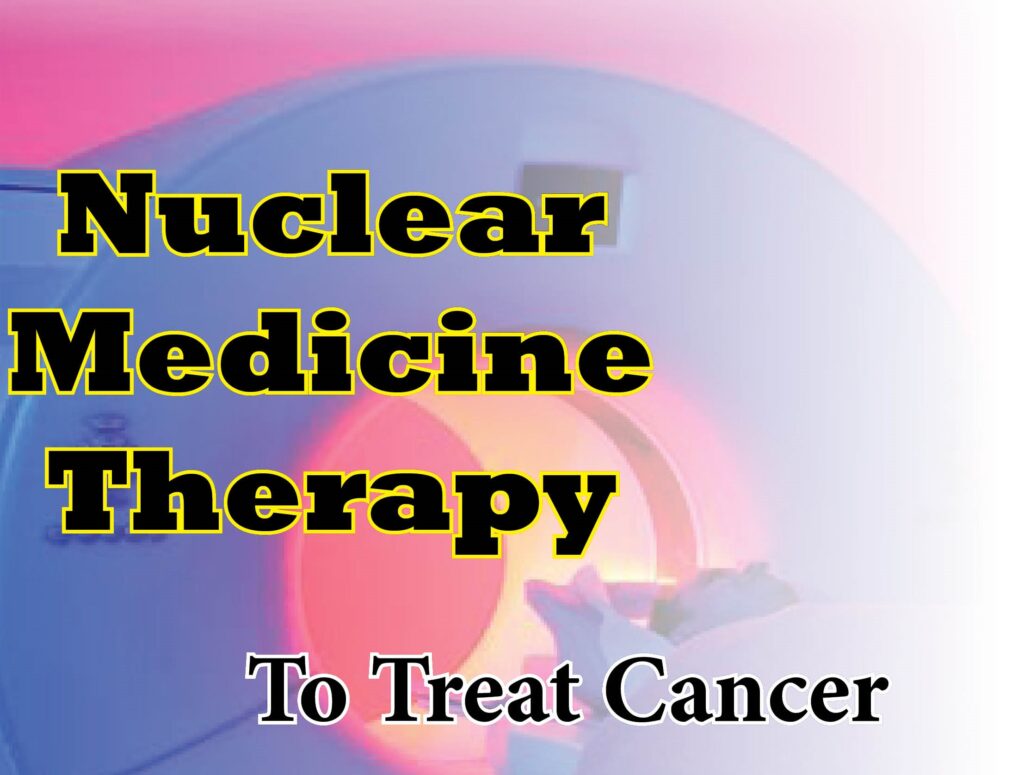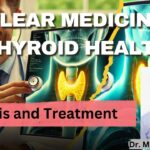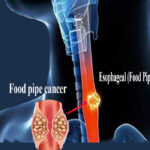Nuclear medicine therapy is a treatment approach used to treat cancer. It is used with other cancer treatment options like chemotherapy, and surgery. When the patient doesn’t respond to other treatment options Nuclear medicine therapy could be an option.
It uses radionuclides for the therapy of a disease process. Patient exposure in nuclear medicine is common thus protection from radiation should be taken care of.


Here, radioactive drugs are injected intravenously, they stick to tumor cells, and radiations are delivered directly to cancer cells that cause them to die without affecting the nearby healthy tissues. The drug that doesn’t kill cancer cells, stays in the blood and is removed from the body through urine.
What is the difference between radiation therapy and nuclear medicine therapy?
In radiation therapy x rays enter the body from the outside however in Nuclear medicine therapy, radioactive molecules are injected intravenously to kill the cancer cells without affecting the nearby healthy tissues.
How is Nuclear medicine therapy carried out?
Once the diagnosis and line of treatment are confirmed, the treatment is started with Nuclear medicine. Blood investigations and radiographic investigations are carried out to identify if the patient is eligible for treatment. The patient is prepared for therapy, 4 sessions are done in therapy, and each session is done 8 weeks apart.
A team of specialists is involved that makes the ideal diagnosis and plans the treatment accordingly.
Types
Nuclear medicine is used in two ways –
- Nuclear medicine in diagnosis
- Nuclear medicine in treatment
Nuclear medicine in diagnosis
Nuclear medicine when used for diagnosis it is used to identify a wide range of health issues. The radiopharmaceutical is either inhaled by the patient or injected into the patient. Wherever this material struck the camera will take the pictures and the doctor would be able to identify the problem.
SPECT (Single-photon emission computed tomography ) is used to get detailed information about the functioning of the organ.
Nuclear medicine therapy has made the diagnosis easy and is a noninvasive procedure it helps diagnose cancer.
Nuclear medicine helps diagnose thyroid issues, gall bladder issues, cancer, and heart abnormalities.
Nuclear medicine in treatment
Nuclear medicine when used in treatment it only kills the cancer cells, not the nearby healthy tissue. Nuclear medicine as a treatment is used to treat thyroid cancer, overactive thyroid, prostate cancer, and meningioma.
Radioactive techniques are useful in treatment these days.
Who is eligible ?
Your doctor would guide you if you are an ideal candidate for Nuclear medicine therapy based on
1.Tumor size
2.Overall health status
3.Any other severe medical condition
Who is not eligible?
Candidates not eligible for Nuclear medicine diagnosis and treatment are pregnant ladies, breastfeeding mothers, or those who want to conceive or become pregnant in near future.
Who are specialists involved in Nuclear medicine therapy?
The team of doctors is involved in carrying out Nuclear medicine therapy. The team decides the treatment depending on the need and status of the health of the patient.
Is it working well on the patient?
Each individual responds differently to treatment, usually, the patient gets relief from the symptoms after the second dose. The line of treatment is adjusted as per the requirement of the team of specialists.
SPECT scan is done post-treatment to check how much the drug is struck to cancer cells and how much drug would be removed from the body. This would help the doctors to identify how much nuclear medicine therapy is required by the patient to kill the cancer cells.
Following type of treatment based on the type and stage of cancer.
Targeted APLHA PSMA THERAPY
ALPHA PSMA THERAPY has very few side effects, it is safe and is used to control cancer and advanced prostate. Fortis Memorial And Research Institute, Gurugram, Haryana is the only center that is doing this therapy on regular basis under a team of experts.
Lu PSMA Therapy
Lu PSMA Therapy is used to treat advanced Prostate cancer. It is highly effective, reduces the size of cancer, slows the growth of cancer, and reduces pain thus providing a better quality of life.
PRRT ( Peptide Receptor Radionuclide Therapy )
PRRT is used to treat neuroendocrine cancer. Neuroendocrine cancers are found in the small intestine, stomach, pancreas, and lungs. This therapy is useful for the advanced stage of cancer when the patient doesn’t respond to other treatment therapies. It slows the growth of cancer, reduces the size of the cancer, and reduces pain.
Actinium (AC225 )/ ALPHA PRRT
ALPHA PRRT therapy is used as a treatment therapy in patients who do not respond to other treatment therapies for cancer. This therapy is useful for advanced Neuroendocrine cancers. Nausea is a common side effect but it is minimal and can be controlled with medicines.
1-131 MIBG THERAPY
MIBG THERAPY is used for the treatment of advanced neuroblastoma. The major advantage of the therapy is it destroys only cancer cells not healthy tissue. A few side effects are common like nausea and dry mouth. But they are controlled well.
TRANSARTERIAL RADIOEMBOLISATION (TARE)
Transarterial radioembolization is used in the treatment of colon cancer. This therapy in combination with chemotherapy is very useful, well-tolerable, effective, and treats cancer well. There are few side effects with the therapy but it could be controlled well.
Side effects
Following are the side effects of Nuclear Medicine therapy though they are limited these days
1 )Your doctor would always explain to you the risks and side effects you could observe with Nuclear medicine therapy.
2)Side effects depend on your overall health, and previous medical condition.
3)One of the most common side effects is nausea and hair loss with nuclear therapy but these days this issue is very less.
4)You should limit traveling activities during Nuclear medicine therapy.
Final note
Nuclear medicine therapy is useful these days to treat serious medical conditions and complex health issues. Contact your healthcare specialist for better support and guidance.


Dr Jyotsana Anand Suri
Certified medical content writer
Email: jyotsana789@gmail.com











